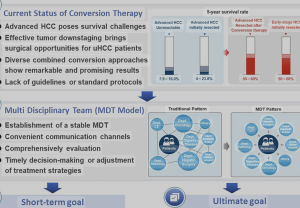In a retrospective comparative cohort study, Hou et al. 1) published in the American Journal of Translational Research, the authors—affiliated with the Department of Oncology, Department of Gynaecology and Obstetrics, and Department of Neurosurgery at Shijiazhuang People’s Hospital (Hebei, China), as well as Beijing Water Conservancy Hospital—compared the survival benefit and safety profile of lenvatinib versus donafenib as conversion therapy in patients with hepatocellular carcinoma (HCC) at China National Liver Cancer (CNLC) stages I–III.
Lenvatinib demonstrated significantly superior survival outcomes—both in overall survival and progression-free survival—compared to donafenib. It also showed better tolerability, with fewer grade ≥3 adverse events.
❌ 1. Study Design: Retrospective = Weak Evidence
This is yet another retrospective single-center analysis, plagued by inherent biases—selection, reporting, and confounding—that no amount of statistical massaging can resolve. No randomization, no blinding, and no control for treatment timing or physician discretion. In oncology, where treatment nuances matter, such designs should be considered hypothesis-generating at best, not guidance for clinical practice.
